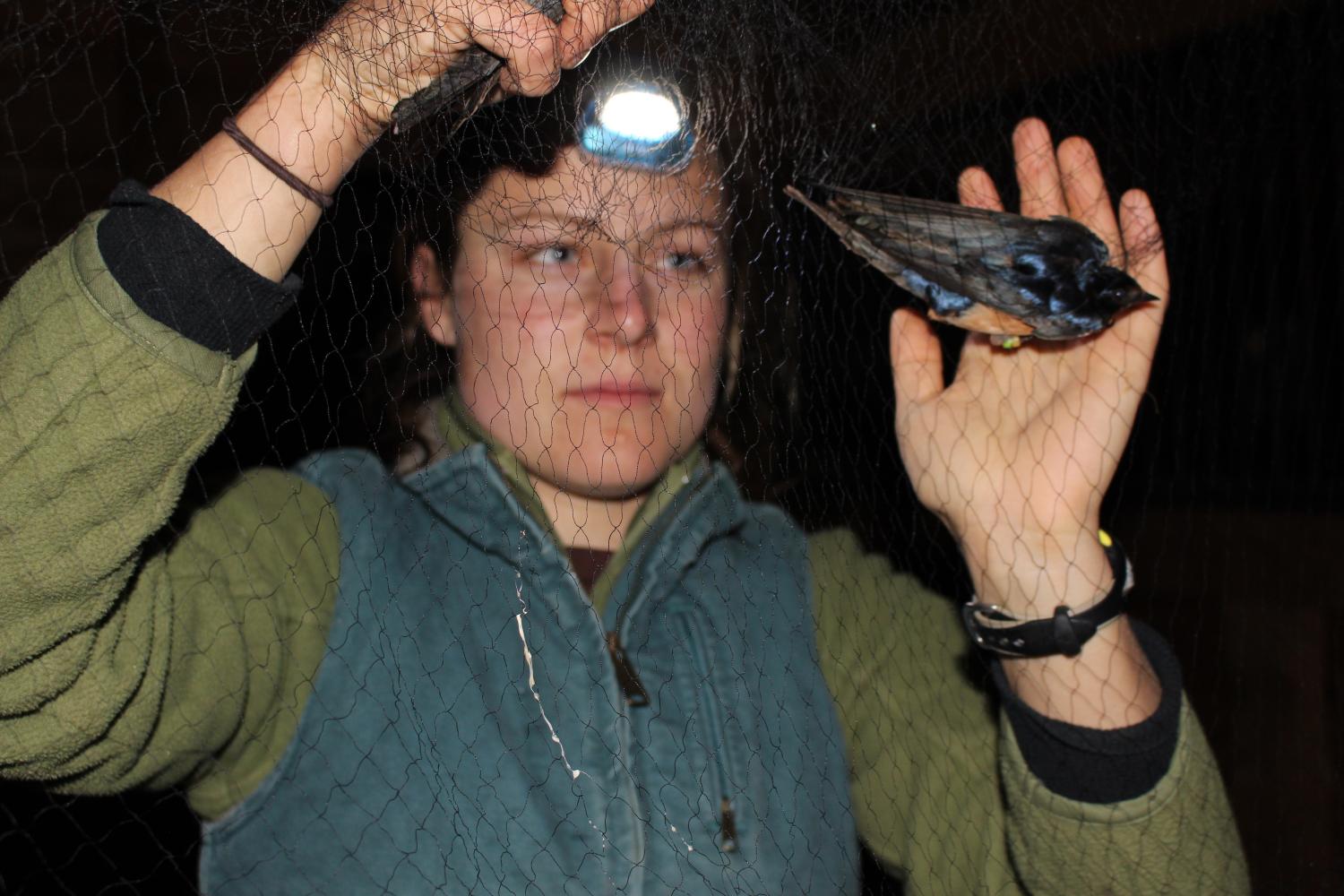Attractive males advertise clean territories
Amanda Hund.
I am a PhD student in EBIO working with Dr. Rebecca Safran. My research focuses on understanding how parasites may play an important role in how new species form. Specifically, I am interested in how parasites influence the evolution of sexual traits across closely related populations.
To explore these questions, I work with three subspecies of barn swallows that are found in Colorado, the Czech Republic, and Israel. Each of these subspecies use different sexual traits to select their mates: plumage color in Colorado, tail streamers in the Czech Republic, and both color and tail in Israel. These three populations are also infected by different communities of parasites. My research has shown that different sexual traits in at least two of the populations are signaling information to females about the costly parasites in a male's territory. These parasites reduce the health and survival of nestlings as well as influence their ability to develop their own attractive sexual traits in the future. In barn swallows, I have found evidence that sexual traits have evolved to advertise valuable information to females about local parasites.
This video was filmed at one of my field sites in Boulder Colorado and highlights some of my work with barn swallows.



